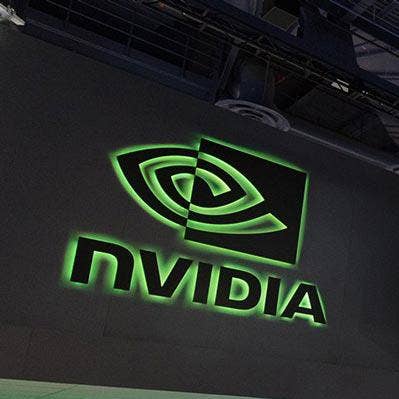Nvidia-Mellanox Deal OK'd By China, Expected To Close Soon
'Nvidia is going to be able to build some amazing gear. Being able to tie the GPUs so closely to the fabric or to the network is going to be very interesting,' one Nvidia partner says of the potential impact the Mellanox acquisition could have on the high-performance computing market.

Nvidia expects its $6.9 billion acquisition of high-speed interconnect vendor Mellanox Technologies to close later this month after the deal was approved by Chinese antitrust regulators.
The Santa Clara, Calif.-based company announced on Thursday that the Mellanox deal was approved by China's State Administration for Market Regulation, the last regulatory hurdle Nvidia needed to clear before it can take ownership of the publicly traded company, minus customary closing conditions.
[Related: Nvidia, AMD Join Cloud Giants To Fight COVID-19 With HPC Might]
Nvidia said it expects the deal, which was announced a year ago, to close by or around April 27.
Dominic Daninger, vice president of engineering at Nor-Tech, a Burnsville, Minn.-based Nvidia partner, said the deal is a sign of Nvidia's big ambitions in the data center, particularly around high-performance computing, since data throughput is emerging as a major bottleneck in workloads.
With access to the technology behind Mellanox's high-speed InfiniBand interconnect, Nvidia will be able to develop new kinds of solutions that address those bottlenecks, Daninger added.
"They're moving more and more toward the data center and distributed parallel [processing]," he said. "They've done some of their own low latency high bandwidth interconnects already, but it doesn’t scale like Mellanox InfiniBand does."
Eliot Eshelman, vice president of strategic accounts and HPC initiatives at Microway, a Plymouth, Mass.-based Nvidia partner, said he sees the deal as a largely positive development because of the new kinds of solutions the chipmaker can develop.
"Nvidia is going to be able to build some amazing gear," he said. "This is all speculation and probably a few years down the road, but being able to tie the GPUs so closely to the fabric or to the network is going to be very interesting. I expect it will enable some capability that we just haven't had."
Nvidia and Mellanox have previously collaborated on solutions, including Nvidia's DGX-2 deep learning system, which includes eight Mellanox ConnectX adapters that supports both InfiniBand and 100-gigabit Ethernet connectivity, enabling faster data throughput for Nvidia's GPUs.
With the acquisition, Eshelman said he expects more innovation that will help Nvidia further address throughput bottlenecks, which can dampen the impact of its high-performance GPUs.
"That's been hard for Nvidia," he said. "Their product is so fast that you can't get data into it fast enough."
Eshelman said there are concerns in the HPC community, however, about what will happen to Mellanox under Nvidia's ownership since it was already the main player in the interconnect market after Intel ditched future development of its Omni-Path interconnect technology.
"People were already worried that there's only one game in town if you need a high-speed fabric," he said. "And now that it is attached to Nvidia. What does that mean?"
China's approval of the Nvidia-Mellanox deal stipulates that the companies can not "add bundles or other 'unreasonable' requirements when selling devices in China," SeekingAlpha reported.
Nvidia and Mellanox have previously assured partners and customers that Mellanox's products would continue to work with other processor vendors like Intel and AMD, the former of which plans to enter the data center GPU market while the former is already selling such solutions in the space.
"I don't know the market dynamics that well, but I feel like they would be crazy to walk away from their existing success," Eshelman said. "They've been so successful as an interconnect company, but they can't throw that away."